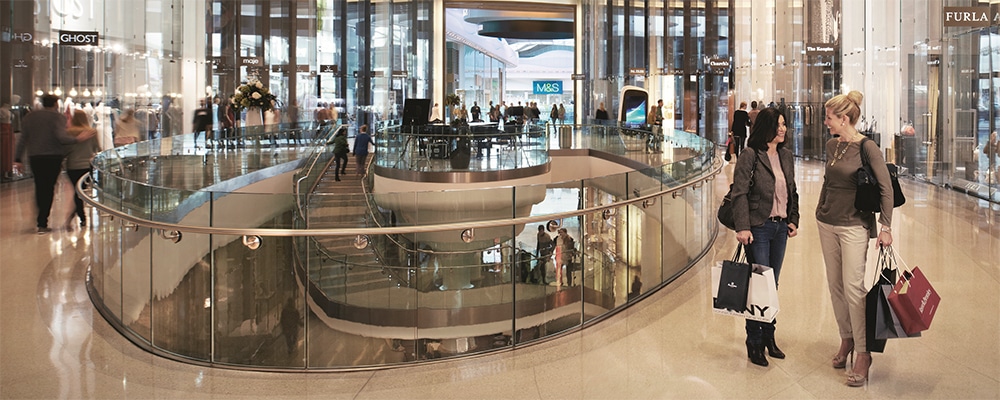Aussie retailers need to embed technology and innovative thinking to gain global traction.
The UK market, like Australia, has its own market dynamics, customer idiosyncrasies and payment methods. The key challenge is usually to adapt to the local customer experience. Much can be learned by looking at what successful incumbents are doing when it comes to payments, deliveries and customer service. Then it’s about getting the right advice on the pragmatics of doing business, from commercial contracts to employing staff.
My background in product innovation means that I’m always drawn to new technologies, not as a fawning devotee but with a view to the impact they are likely to have on traditional industries. Most traditional retailers are conservative in their approach to adopting new tech, but slipping footfall and the advance of mobile with smarter artificial intelligence (AI) and search functions means they have to innovate to keep up. Tapping into social media and increasing personalisation is key.
Despite the concerns Brits have generally about data protection and privacy, 58% of respondents of a recent the7stars survey think the regulation is a positive step towards protecting their data and privacy, with Londoners being the most positive (65%). Businesses could also see a benefit, with 32% of customers saying they will trust brands more with their data as a result of the implementation of the regulation, and those aged 18-24 (40%) also agree the most with this change.
Anyone planning to enter the UK market needs to have their data ducks in a row, and my colleagues at the UK Department for International Trade are well placed to advise. Firms that get their data protection and privacy policies sorted out sooner rather than later stand to benefit the most as more consumer data falls into their lap.
Of course in order to get the data retailers need to constantly innovate to maintain relevant across social and mobile channels. The key to many UK retailers is how technology can improve omni-channel personalised shopping, engage in the social space and utilise AI to improve operations and sales.
There are moves to include nascent tech like Virtual and Augmented Reality but mobile is the main driver still for innovation. Salesforce Shopping Index states that UK retailers saw overall traffic climb 9% in Q4, year-on-year, mostly thanks to mobile which saw a 21% traffic increase. Two-thirds of digital commerce traffic (67%) now comes courtesy of mobile phones in the UK. Order share for mobile also posted another increase in Q4 to 40%, within snapping distance of the 42% of orders clicked through on our computers. In the UK, 8% of mobile traffic is driven by social than any other country globally.
Somo Global are one of the UK’s leading digital agencies with a proven track record in taking successful businesses in traditional industries and implementing practical innovations to upgrade their client’s customer base in the digital realm. They take teams from retailers like Argos and run hack days to inspire their staff and show them the templates for deploying engaging and effective digital solutions. Embedding innovative thinking in the client’s key staff as well as developing products and services they can take away. It’s a process more retailers are turning towards to keep on track with the latest tech trends.
All the tech moves into the physical retail space look to bring more of the efficiency and automation of the online world to the bricks-and-mortar experience. Companies like Flashy are amongst a host of start-ups attempting to introduce the convenience of web-based experiences into the high street
Flashy has been built on the back of over a decade of in-depth consumer insight research into the shopper experience online and offline retail. In Flashy enabled retail outlets, products are tagged with Bluetooth LE and accelerometer therefore, each time a shopper picks up a product, the Flashy analytics system reports this, and the level of engagement to the retailer. From here, shoppers with the Flashy app installed on their phone get a passive browse history of products they have interacted with in store.
Whether it is research lab inspired projects or agencies embedding retail staff with their product teams, it’s clear that solutions for the retail sector are bought as much for their ability to transform the thinking of the clients as the number of customer clicks.
Tony Hughes is a special advisor for the UK’s Department for International Trade (DIT) across Creative and Digital industries, helping Australian businesses seize opportunities in UK and across the rest of Europe. Learn more about how DIT can help your business at great.gov.uk




















